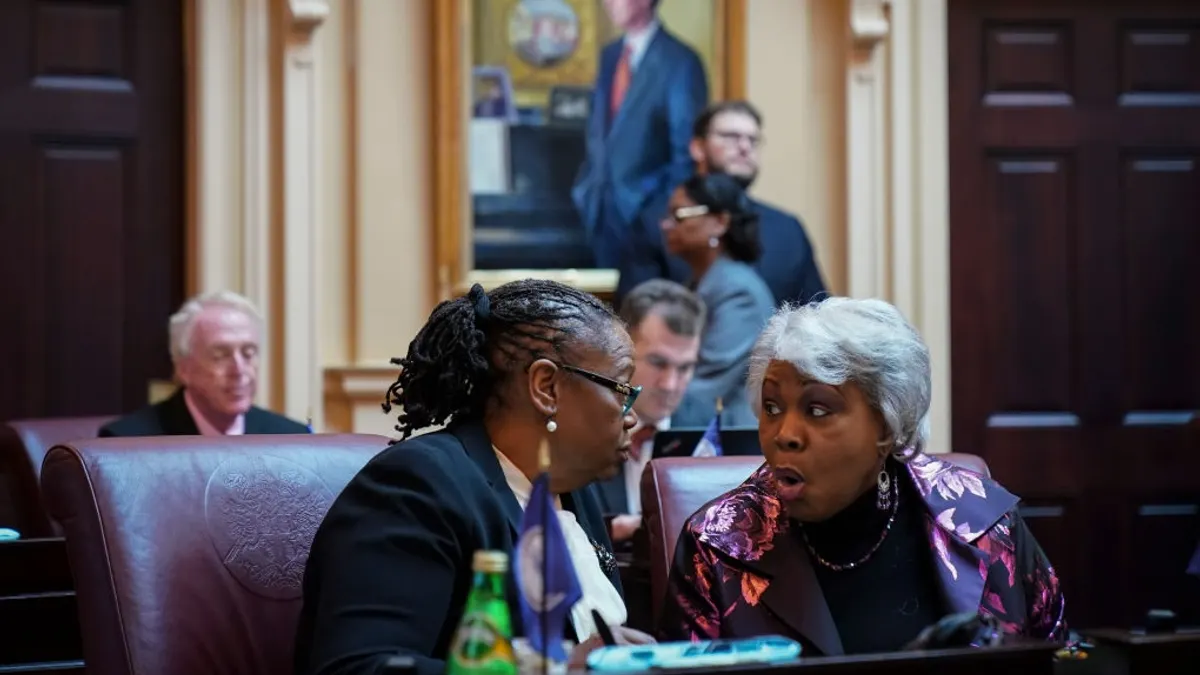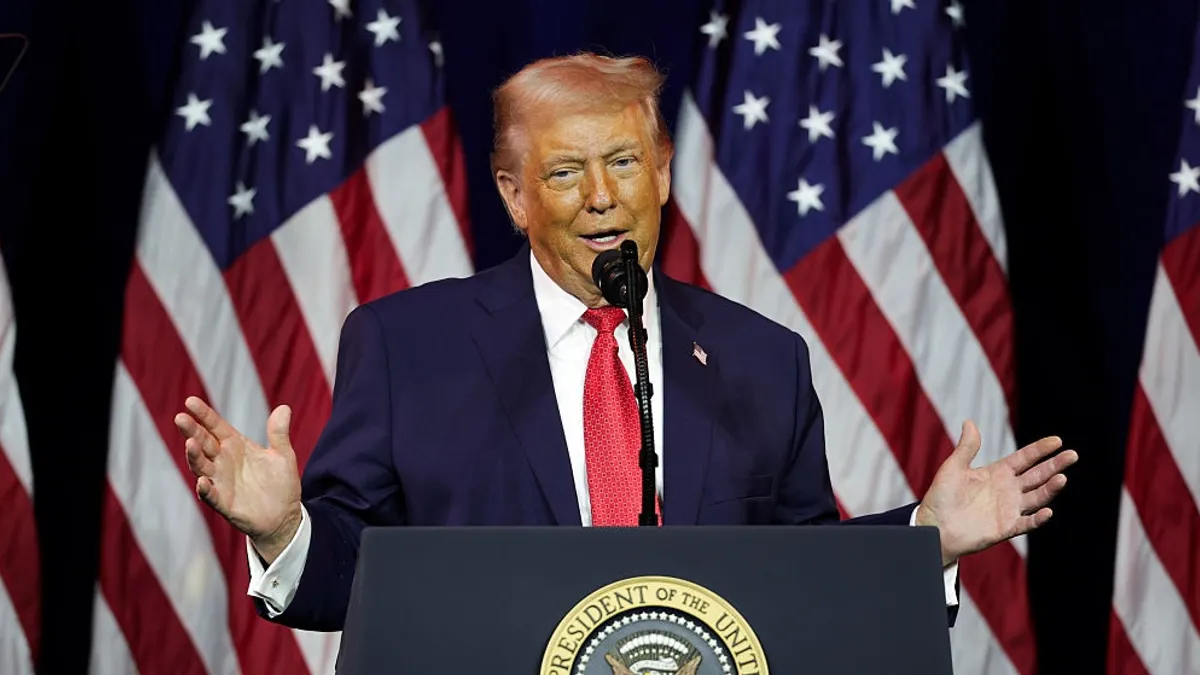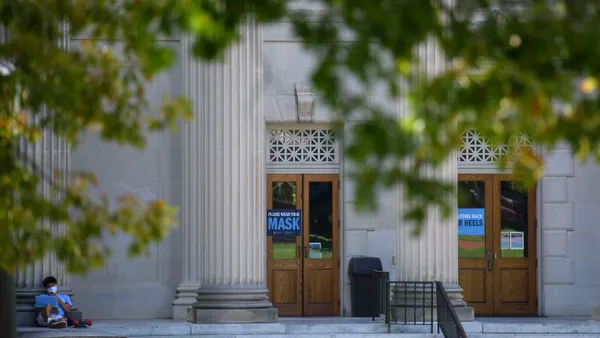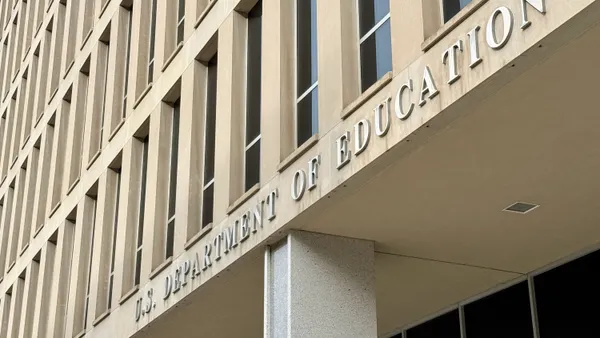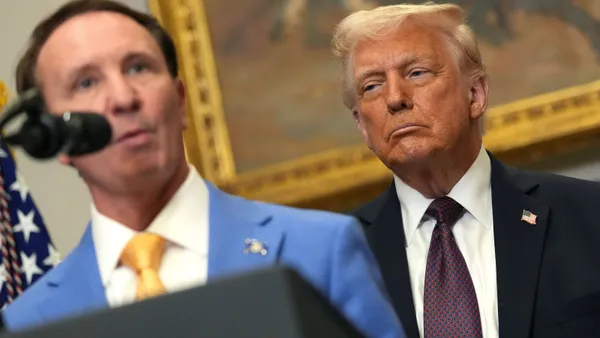Dive Brief:
- Three leading Virginia state senators this week urged University of Virginia’s top officials to immediately reject the Trump administration's proposed higher education compact and threatened the institution’s state funding if they signed on.
- In an Oct. 7 letter to UVA leaders, Democratic state Sens. Scott Surovell, L. Louise Lucas and Mamie Locke called the federal government's conditions "an unprecedented federal intrusion into institutional autonomy and academic freedom."
- Agreeing to those terms would invite further federal interference at the university, the trio said, citing the Trump administration's recent ouster of UVA’s president. If UVA agrees to the compact, they warned, the institution will face "significant consequences in future Virginia budget cycles.”
Dive Insight:
The Trump administration's compact would offer UVA, along with eight other research universities, preferential access to federal research funding if they agree to its wide-ranging and unprecedented conditions.
Some of those terms are straightforward, such as a five-year tuition freeze, a standardized testing requirement for admissions and a 15% cap on international students’ share of undergraduate enrollment.
Others are less clear cut, including required public audits of the viewpoints of employees and students, institutional neutrality on most political and social events, and a commitment to changing — or ending — institutional units that purposefully "punish" or "belittle" conservative ideas.
All of the proposed conditions of the agreement "are fundamentally incompatible with the mission and values of a premier public research university," the lawmakers told UVA Interim President Paul Mahoney and Rachel Sheridan, head of the institution's governing board.
For instance, the state senators raised alarms about one element of the compact that would bar signatories with large endowments from charging tuition for students enrolled in “hard science programs.”
That would force students in humanities and social sciences "to subsidize" those enrolled in STEM programs, representing "a bizarre federal intrusion into institutional financial planning that devalues essential fields of study,” they wrote.
"This is not a partnership," the lawmakers said. "It is, as other university leaders have aptly described, political extortion."
Surovell, Lucas and Locke wield significant legislative power as the state Senate majority leader, president pro tempore and chair of the Senate Democratic Caucus, respectively. They underlined this influence in their letter, vowing "to ensure that the Commonwealth does not subsidize an institution that has ceded its independence to federal political control."
The three senators pointed specifically to the forced departure of former UVA President Jim Ryan, who abruptly resigned in June amid federal pressure to step down over the university's diversity efforts during his seven-year tenure.
In his announcement, Ryan said he wouldn’t fight back against the Trump administration and attempt to keep his job because staying would cost UVA research funding and student aid and hurt its international students.
Federal officials ousted Ryan, the state senators said, "not for any failure of leadership, but because they disagreed with the University's approach to diversity and inclusion." They categorized Ryan as a successful leader who was made into a political sacrifice — one that didn’t stave off further interference.
"President Ryan's resignation was meant to spare the University from federal retaliation, yet here we are again, facing even more aggressive demands on institutional autonomy," they told UVA leaders. "The lesson is unmistakable — appeasing this Administration only emboldens further encroachment."
UVA faculty similarly called for institutional leaders to rebuke the compact. In a 60-2 vote, the university's faculty senate approved a resolution on Oct. 3 whose preamble called the proposal dangerous to UVA and a likely violation of state and federal law.
The Trump administration gave the nine universities until Oct. 20 to offer feedback on the compact and until Nov. 21 to sign the agreement.


